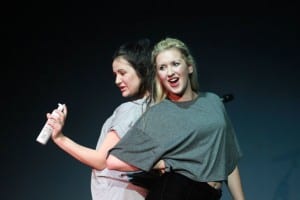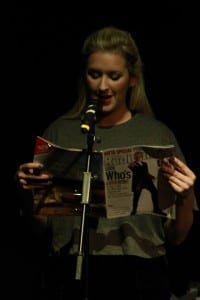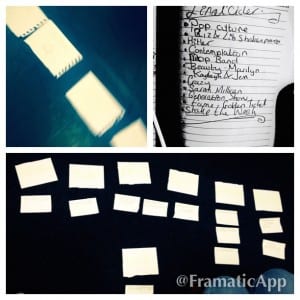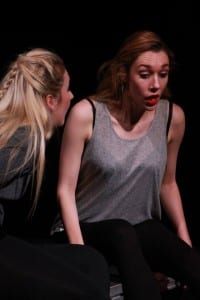‘Stage management should try to stay one step ahead of the needs of the director and acting company by planning, preparing and organising in advance’ (Hawkins and Menear, 2011).
Working to schedules and deadlines ensures that all members of the theatre company are aware of when sections of the performance need to be completed and gives everyone a time frame to work within. Draft deadlines have been included within the Production Plan (see here) so that documents are ready within a contingency period. This gives us time as a team to rectify any problems before the final version of documents are published. As Hawkins and Meyer have stated above I have attempted at being ‘a step ahead’.
One technique which saved the production team time, was that documents were given an electronic template as early as possible and then filled in accordingly as our company progressed through our devising process. A Production and Stage Mangers job involve a substantial amount of negotiation and communication between all members of the company, creative team and the venue stage manager. Deadlines were set in negotiation with the venue stage manager at the Lincoln Performing Arts Centre and it was ensured that this information was communicated and filtered through the production team and actors (if necessary) effectively.
Tech Rehearsal Schedule Production Week Check list Pre Show Check List Get Out Check List
(above are some examples of the sheets that have been created to ensure that our company constantly remained organised)
Stage Management Birmingham REP/National Theatre
Andy Beardmore, one of the Stage Mangers for Birmingham Rep discusses the skills and experiences needed. He mentions organisation and communication skills. Hand Me Down Theatre’s production have had weekly meetings to ensure that each member understands the visual aesthetic for the show and ensures that every technical and material element fits the main objective of the performance.
Mary O’Hanlon describes her experience during a show that has heavy technical elements across a multi platform performance. Similarly in Take Me By The Tongue, actors are used as visible stage hands in order to move material elements of the show, as well as set and live feed camera.
Work Cited:
Hawkins, T and Pauline Menear. (2011) Stage Management and Theatre Administration. London: Phaidon Press limited.







